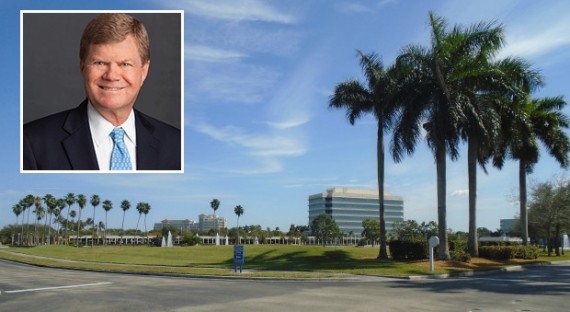Multifamily developer Mill Creek Residential has cleared another review hurdle in its bid to build 300 apartments at a Plantation commercial park, recently scoring approvals for a needed land-use change from the city planning and zoning board.
Last April, Mill Creek went before the Plantation review committee to present its proposal for turning 6.26 acres of land in Cornerstone Corporate Center into 300 apartments. On the face of it, it seemed like a bold request, because, according to the land-use plan for the parcel, it was designated commercial. The development, which was designed as an office park, already has five office buildings and a full-service Renaissance Hotel.
But the review committee for the city ultimately allowed the developer — which specializes in luxury apartment development and management — to submit its plan to the planning and zoning board, which approved a land use change at a meeting last week.
The next step in the approval process is for the developer to go before the city council to get approval for a land use amendment. The date of that meeting has not yet been scheduled, says Lisa Zelch, one of the planners working on the project.
One of the reasons behind the planning and zoning board’s decision was the revitalization of the Midtown district, where Mill Creek’s apartment project is planned. The neighborhood has seen an influx of residential development over recent years, just not in the office park itself.
Bill Laystrom, attorney for the Patrinely Group, the owner of the land where the apartment project is being planned, said the project’s residents would be within walking distance to both nearby retailers as well as the office park. That could create a tax windfall of up to $124 million for the city, he said, with the added residents’ expenditures within the neighborhood.
He said Patrinely sought a land-use change because the Plantation office market is weak and likely will remain that way for the forseeable future.
“Patrinely has been trying to market two sites [in the park] for large office buildings for the last 19 years,” he told the board. “Recent studies show that the office market now, and for next four or five years, is (going to be) flat,” said Laystrom.
Lest anyone mourn the loss of an office site, Laystrom added that “one office parcel in the corporate park will remain. There won’t be additional residential on that site,” he said.
A speakers at the meeting asked whether city officials were concerned over the neighborhood’s rising stock of residential properties replacing commercial buildings.
Shelley Eichner, interim director for Plantation’s planning, zoning and economic development department, said commercial properties do make up a relatively small percentage of city’s tax base. But a recent study on the Midtown neighborhood, presented to the city council in August, indicated an unsatisfied need for more residential development in Midtown and other “gateway areas.”
“It is true that more land going for residential reduces the tax base,“ said Eichner. “But our concern in this particular case was with the compatibility of an isolated residential [development] surrounded by an office park,” she said.
She added that Mill Creek pledged its site plan would demonstrate compatibility.
